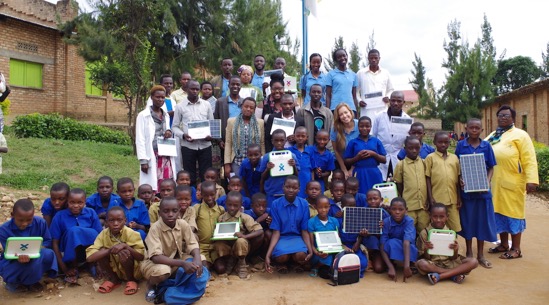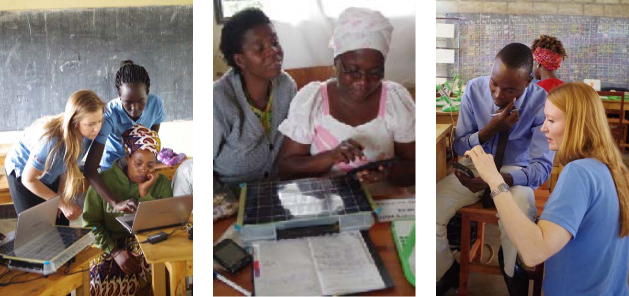
SolarSPELL March 2018 Progress Report
Progress
The launch of Phase 2 of the East Africa SolarSPELL initiative, March evaluation, continued assessment of the needs of Biomedical Engineer Technicians, strengthened in-country partnerships, and began a fruitful internship for 10 Bridge2Rwanda scholars. During the implementation trip, the SolarSPELL team conducted Teacher Trainings at 5 pilot schools the Rwanda Education Board (REB) selected, one in each province of Rwanda. The team trained 73 teachers, school administrators, and Peace Corps Volunteers on how to use the SolarSPELL digital library. The teachers consisted of both primary and secondary teachers from a variety of subjects, such as ICT, English, Creative Arts, Math, and Science. The size of the pilot schools varied from serving a couple hundred to 3,000+ students. All the schools had electricity, but no internet or REB school server, which had prevented the schools from being able to use the One Laptop Per Child XO Laptops (OLPC) to access educational content. These OLPC laptops can now connect to the SolarSPELL digital library’s offline website, and freely access its localized educational information.

School trainings covered a detailed technology demonstration of the SolarSPELL and the OLPC laptops, navigating and exploring the library, and how to utilize the content in their teaching.
Throughout conducting the Teacher Trainings, the SolarSPELL team’s goals were continuously met. Before each Teacher Training day, the team had a pre-training site visit to the school. During this site visit, an overview of SolarSPELL would be given to the Headmaster or Headmistress, the Peace Corps Volunteer, and their teacher counterpart. In each case, the head administrators were so impressed with the SolarSPELL digital library, they would increase the number of teachers who would attend the training the following day. Furthermore, they would request for secondary teachers to also be permitted to attend, even though the target audience was primary teachers.
